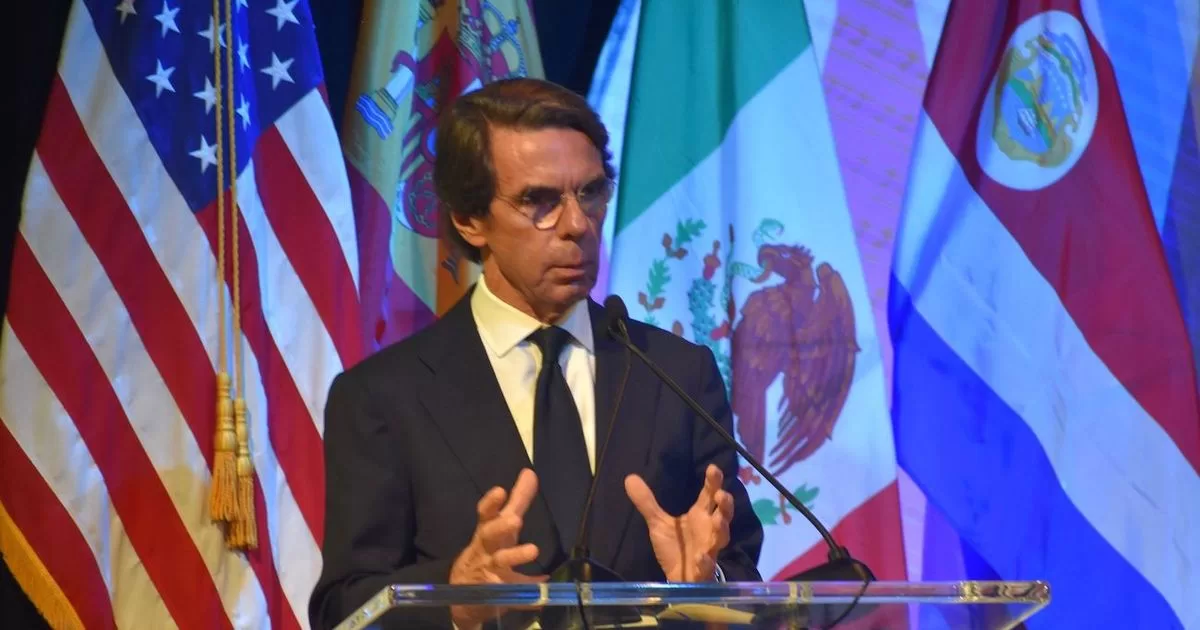MADRID. The former president of the Spanish government José María Aznar He warned that it makes no sense for the grandchildren and great-grandchildren of the civil war combatants to want to repeat the war episode of more than 80 years ago, which is why he asks young people not to dismantle the Spanish transition.
Aznar, in a video he published on his social network account Instagrammade reference to the political situation in his country that he discussed during his participation in a session of the Leadership Classroom of the Francisco de Vitoria University, together with the president of the Community of Madrid, Isabel Diaz Ayuso. He specifically spoke of the alliance between the Spanish government led by Pedro Sanchez and the parties independentists.
The former head of the Spanish government recalls that Spain decided more than 80 years ago to “kill itself” in a very cruel civil war. 40 years later, the combatants of the war decided to forgive each other and the children of the combatants decided to live together, and that was the transition.
The Spanish leader wonders what sense it makes for grandchildren or great-grandchildren to want to return to the civil war and end the transition.
“It doesn’t make any historical sense, it’s nonsense,” he says and asks young people to think that dismantling a regime and returning to confrontational policies is not done without putting the stability of the country at risk.
The political and social situation in Spain is becoming increasingly complex as negotiations on the scope of the amnesty law and self-determination gain momentum, which could have serious consequences for the future of the country.
The ambition of the president of the Spanish government, Pedro Sánchez, to stay in power is bearing fruit. Everything indicates that the independentistas have no qualms about sacrificing the governability of Spain in order to achieve their final objective. There are no rules of the game and the limits of the Spanish political system are being redefined in the process.
Some political analysts point out that it is a gloomy outlookin which the unity of Spain is at stake and the future appears uncertain, so solutions must be sought that prioritize the well-being of the nation over partisan interests.
Spanish Civil War
The Spanish Civil War took place in Spain between July 17, 1936 and April 1, 1939. It was a turbulent time in the country’s history, generating deep division and violence that left a wound in Spanish society.
In the conflict there were two sides with different ideologies and objectives. The side republican, who defended the democracy and the social justice; and the rebellious or nationalist side, led by Francisco Francowhich sought to impose a regime authoritarianand that became leader of Spain until his death in 1975.
The war left thousands dead and exiled, as well as the destruction of cities and towns. The end of the war in 1939 with the victory of the nationalist side brought with it a dictatorship that repressed the freedoms and rights of the Spanish people.
The Spanish Civil War It represented one of the most tragic war events in European history in the first half of the 20th century. It is estimated that around 500,000 lives were lost, in addition to creating a dictatorial regime in the country that lasted 36 years.
It is important that new generations know this historical period to learn from their mistakes and build a better future for Spain.
(email protected)
Source: Instagram social network account of the Spanish Head of Government José María Aznar, El Nacional Cat, Humanidades.com

